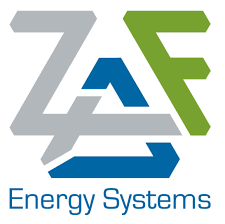In early October, ZAF Energy Systems of Joplin, Missouri announced an agreement to deploy their next generation nickel-zinc (NiZn) battery system in a United States Air Force’s intercontinental ballistic missile ground facility. This was a significant achievement. However, it was just the beginning of a big month for ZAF. This week, the company announced a $19.2 million investment by undisclosed investors. This investment in ZAF’s NiZn technology package marks a significant growth point for the company.
NiZN technology has received advanced research funding for more than twenty years. However, ZAF’s efforts are some of the first in the country to begin the commercialization process. NiZn battery systems are particularly exciting when compared to most other battery systems because of their environmental impact. Unlike lead and other common materials, nickel and zinc are naturally occurring and in significant quantities. Thus, NiZn batteries are much friendlier to the environment and more easily recycled and/or disposed.
According to ZAF, there are three additional advantages of NiZn batteries. First, these batteries, unlike Lithium Ion, can be operated without a battery management system. Second, they have a longer operational life than lead-acid batteries. And third, these batteries can be stored for a very long time (more than twenty years) without losing their charge.
Randy Moore, President and CEO of ZAF Energy Systems said in a press release regarding the Air Force announcement, “We are seeing our technology perform well in rigorous battery performance testing by major commercial trucking, telecommunications, and large-scale data storage companies.”
BECOME A SPONSOR
Join us in championing the narrative of success, resilience, and ingenuity that defines Nebraska’s startup community. Learn more »
According to a recent independent study done by Report Buyer (https://www.reportbuyer.com/product/5813171/lead-acid-battery-market-by-technology-type-construction-method-end-user-and-region-global-forecast-to-2024.html?utm_source=PRN), the lead-acid battery market is very large – $41.6 billion in 2019 with 4.7% compound annual growth rate (CAGR) through 2024. Much of this growth continues to be in automotive and transportation. However, large data centers require uninterrupted power supplies – meaning that they often have backup power storage (on batteries) available to ensure up-time. This is also pushing growth in the traditional battery segment.
According to ZAF, ZAF’s NiZn batteries offer greater storage capacity and power over legacy lead-acid batteries in smaller, lighter packages. And this means that they are uniquely qualified for many industrial uses such as transportation, data centers, and military.
To find out more information go to ZAF Energy Systems’ website at http://zafsys.com.



